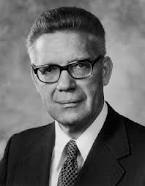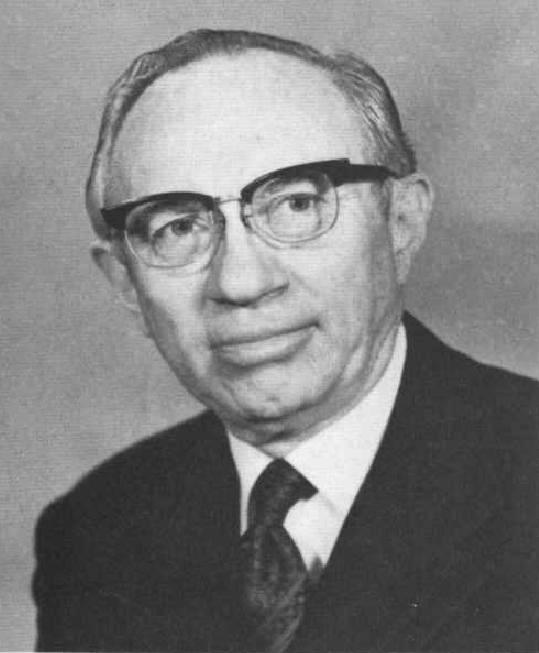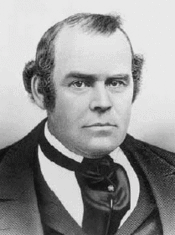
This post is an adaptation from a talk given at Church. Several quotes are taken from the book by Tad R. Callister, The Infinite Atonement.
The Sacrament
Partaking of the Sacrament is the most important and sacred reason why members of the Church of Jesus Christ go to Church every Sunday.
Why is the sacrament so important?
Elder Tad R. Callister, former member of the presidency of the seventy and Sunday school general president, told this story:
One Sunday morning, our teenage son, stood with two other priests, to administer the sacrament. When they pulled back the white cloth, to their surprise, there was no bread. One of them went to the preparation room, hoping to find some. But there was no bread. Finally, our troubled son, made his way back to the bishop and shared the problem with him.
A wise bishop, sensing a teaching moment, then stood, explained the situation to the congregation, and asked, “What if the sacrament table were empty today, because there had been no Atonement?”
Tad R. Callister, The Infinite Atonement

In the Church of Jesus Christ of Latter-day Saints (LDS Church), the Holy Sacrament of the Lord’s Supper, most often simply referred to as the sacrament, is the ordinance in which participants eat bread and drink water in remembrance of the body and blood of Jesus Christ.
The Atonement
What gives meaning and power to the Sacrament is the Atonement of Jesus Christ.

Elder Bruce R. McConkie began his famous last general conference talk, The Purifying Power of Gethsemany with these profound words,
I feel, and the Spirit seems to accord, that the most important doctrine I can declare, and the most powerful testimony I can bear is of the atoning sacrifice of the Lord Jesus Christ.
His atonement is the most transcendent event that ever has, or ever will occur…
It is the supreme act of goodness, and grace, that only a god could perform.
Through it, are brought to pass the immortality, and eternal life of man. Through it, all men are saved from death, hell, the devil, and endless torment.
And through it, all who believe and obey the glorious gospel of God…all shall become as their Maker, and sit with him on his throne, and reign with him forever, in everlasting glory.
He continues,
The atonement of Christ is the most basic, and fundamental doctrine of the gospel, (however) … it is (also) the least understood of all our revealed truths …Many of us have a superficial knowledge and rely upon the Lord and his goodness to see us through the trials and perils of life.
…But if we are to have faith like Enoch and Elijah, we must believe what they believed, know what they knew, and live as they lived.
May I invite you to join with me in gaining a sound and sure knowledge of the Atonement.
What a powerful invitation from Elder Bruce R McConkie!
We should ask ourselves: Do I have a desire to obtain a sound and sure knowledge of the Atonement?
Perhaps we have the desire, but we don’t know where to start. Or perhaps we think that we are too young, or too old, or that it may be too hard, or that perhaps we are not smart enough nor spiritual enough.
Whatever the reason that may keep us from learning more, we should consider what Elder Callister said also:
Every attempt to reflect upon the Atonement, to study it, to embrace it, to express appreciation for it, however small or feeble it may be, will kindle the fires of faith – it is a natural consequence of making the effort. We become like those things we habitually love and admire. And thus, as we study Christ’s life and live his teachings, we become more like him.
We may also receive some further encouragement in our efforts from D&C 42:61:
If thou shalt ask, thou shalt receive revelation upon revelation, knowledge upon knowledge, that thou mayest know the mysteries and peaceable things—that which bringeth joy, that which bringeth life eternal.
Therefore, with just a little bit more faith, we can start, or we can continue with more focus, the process of learning about the Atonement of Jesus Christ.
We know that we will never have a perfect knowledge in this life, but this should not eliminate the need (nor it should diminish the desire) to know what is “knowable”.
According to Elder Callister, however, the Atonement is not a doctrine that lends itself to some singular approach, like a universal formula.
This doctrine – he says – “must be felt, not just “figured”; internalized, and not just analyzed.”
Several years ago President Gordon B. Hinckley in general conference told a story that may help us “feel” and “internalize” this doctrine,

It is “a parable” about “a one room school house in the mountains of Virginia where the boys were so rough that no teacher had been able to handle them.
Then one day an inexperienced young teacher applied. He was told that every teacher had received an awful beating, but the teacher accepted the risk.
The first day of school the teacher asked the boys to establish their own rules and the penalty for breaking the rules. The class came up with 10 rules,
Then the teacher asked, ‘What shall we do with one who breaks the rules?’
The answer was: Let us “Beat him across the back, ten times, without his coat on,’
A day or so later, … the lunch of a big student, named Tom, was stolen. ‘The thief was located—a little hungry fellow, little Jim, about ten years old.’
As Little Jim came up to take his beating, he pleaded to keep his coat on. ‘Take your coat off,’ the teacher said. ‘You helped make the rules!’
The boy took off the coat. He had no shirt, and revealed a bony little crippled body. As the teacher hesitated with the rod, Big Tom jumped to his feet and volunteered to take the boy’s beating.
Very well, there is a certain law that one can become a substitute for another. Do you all agree?’ the teacher asked. They all agreed
After five strokes across Tom’s back, the rod broke. The class was sobbing. ‘Little Jim had both arms around Tom’s neck.
Tom, I’m sorry that I stole your lunch, but I was awful hungry. Tom, I will love you until I die for taking my beating for me! Yes, I will love you forever!”
President Hinckley then quoted Isaiah:
Surely he (meaning, Christ) hath borne our griefs, and carried our sorrows.
He was wounded for our transgressions, he was bruised for our iniquities: the chastisement of our peace was upon him; and with his stripes we are healed.
He was the victim, but He paid the price. What an amazing demonstration of love!
Purposes of the Atonement
The Atonement has two purposes: the first is to reconcile us with God or to redeem us and the second is to perfect us.
A prophet in the the Book of Mormon, Lehi, wrote,
The Messiah cometh in the fullness of time, that he may redeem the children of men from the fall” (2 Nephi 2:26).
After the Fall, you all know that Adam and Eve had become mortal and spiritually dead and only the power of the Atonement could overcome physical and spiritual death, and reconcile us with God, or redeem us. This is the first purpose of the atonement.
The Fall, however, was not a tragic step backwards, it was not an accident or a stumbling block, but it was a stepping stone, and it was necessary. It was part of God’s master plan. Truly,
Adam fell that men might be; and men are, that they might have joy
2 Nefi 25, Book of Mormon
In order to experience this joy, however, we need to take advantage of the second purpose of the atonement, and that is: to perfect us.
The Atonement was designed to do more than return us to the starting line, more than make us innocent again. It was designed to provide us with a heavenly endowment that would help us achieve godlike perfection.
How do we obtain this heavenly endowment, or, in other words, this extra “power” that we need to perfect our lives?
Nephi gave the answer,
We know that it is by grace that we are saved, after all we can do
2 Nephi 25:23, Book of Mormon
The LDS dictionary defines grace as a “divine means of help or strength” made possible through the Atonement.
The need for the power of grace to help and strengthen us, may be illustrated by the case of a man who wants to fly through the air, without any mechanical or artificial mean, just using his own body. Can he actually fly, if he puts enough effort into it and enough time to practice?
The answer is no, he cannot.
Even if this man practices jumping out of a cliff many times (supposing that he survives the first time), and even if he has a PHD in aerodynamics, he will fall just the same. It is not simply a question of effort and time, it is more than that, it is a question of capacity.
Similarly, can we, with our natural strengths, acquire all the wisdom of God? The simple answer is again: No, even if we study and learn for all the eternity.
In order to acquire the wisdom of God (or any other God’s attribute), we do not just need time or effort only, but sometimes, somehow, somewhere, we must be “added upon”. And the “adding upon” comes by the power of the Atonement, through His grace.
Some have misunderstood this scripture, and believe that the Atonement, through grace, provides the redeeming power – that is the first purpose of the Atonement), while our own works (represented by the phrase “after all we can do”) provide the perfecting power (that is the second purpose of the atonement).
According to this explanation, grace and work are completely separate in their action and effect, and each serve a distinct purpose. In other words, the Savior gives us his grace, to redeem us, while we work hard to improve and perfect ourselves, and as good partners, putting 50% each, we eventually reach the goal of eternal life.
However, our good works don’t have power in isolation. Without the atonement, without grace, without the power of Christ, all the works in the world would fall far short of perfecting even one human being.
We absolutely need the power of the Atonement of Christ!
To illustrate this point, let us remember the parable of the branches and the vine in John 15,
I am the true vine… Abide in me, and I in you. As the branch cannot bear fruit of itself (or produce good works in our case), except it abide in the vine; no more can ye, except ye abide in me”
In other words, even our good works need to be connected to the true source of good power, the Savior, and receive his power through grace, to be of any eternal value.
Grace and the Holy Ghost
But how exactly the power of the Savior’s grace is transferred to us and perfects us? The answer is simple: the medium to transfer this power is the Holy Ghost.
We know that because of the Atonement of the Savior, we are cleansed (or purified) in the waters of baptism.
And because of that cleansing, we are eligible to receive the gift of the Holy Ghost; and with that gift, we are entitled to the gifts of the Spirit, each of which is an attribute of godliness. Therefore, as we acquire the gifts of the Spirit, we acquire the attributes of God.
Elder Parley P. Pratt beautifully describes this process:

The Gift of the Holy Ghost quickens all the intellectual faculties, increases, enlarges, expands and purifies all the natural passions and affections and adapts them by the gift of wisdom, to their lawful use.
It inspires virtue, kindness, goodness, tenderness, gentleness and charity. It develops beauty of person, form and features. It tends to give health, vigor, animation and social feeling.
It invigorates all the faculties of the physical and intellectual man. It strengthens and gives tone to the nerves. In short, it is… marrow to the bone, joy to the heart, light to the eyes, music to the ears, and life to the whole being.
Parley P. Pratt, Key to the Science of Theology, pp. 101- 102)
Through the gifts of the Spirit we really can change our natures and prepare ourselves for the Celestial kingdom.
If we want to be perfected, then there is no other way but to receive the gifts of the Spirit, one by one, starting in this life and continuing in the next.
Elder McConkie said that “these gifts are infinite in number and endless in their manifestations”. We will not be able to acquire all of them in this life, but we need to start.
If we desire to acquire these gifts, there is even a way to accelerate their acquisition.
The apostles Paul in his discourse on spiritual gifts in 1 Corinthians chapter 12, said: “Covet earnestly the best gifts”.
In this case to covet is not a sin but a virtue, because we are strongly desiring something that is good.
And we shouldn’t be satisfied with one or two gifts only (each of us has at least one, our patriarchal blessing may indicate one or more of them); we should be willing to seek all the best gifts of the Spirit. As we are taught in Matthew 7:7,
Ask, and it shall be given you; seek, and ye shall find; knock, and it shall be opened unto you
But a casual request will not suffice. Speaking of the gift of charity Moroni wrote that we must “pray will all the energy of our heart, that we may be filled with this love” (Moroni 7:48).
If this process of reaching perfection through the obtaining of the gifts of the Spirit seems hard, we need to remember that our growth and development takes time, and that we should not expect perfection in this life, and we shouldn’t get discouraged too easily.
The good news is that there aren’t just two options: perfection or giving up. Perfection may be the ultimate goal, but for now we can be content with progress in the right direction. We just need to keep trying.
God is long-suffering, and if we have the desire to be changed and improve our lives, we can “continue in patience until [we] are perfected” (D&C: 67:13).
